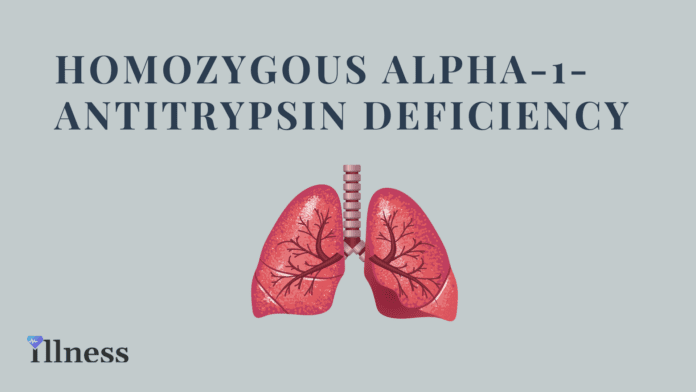Overview Of AAT Deficiency
Alpha-1 antitrypsin (AAT) deficiency occurs when the body under-produces the protein AAT. This protein normally functions to protect the liver and lungs from damage. The deficiency eventually leads to liver disease (cirrhosis) and COPD.
Commonly Associated With
This deficiency occurs alongside Alpha-1 protease deficiency, and COPD – alpha-1 antitrypsin deficiency. It also occurs alongside AAT deficiency, and Cirrhosis – alpha-1 antitrypsin deficiency.
Causes Of AAT Deficiency
A simple lack of the protein AAT,which acts as a protease inhibitor, is the cause of AAT deficiency. This protein normally functions to protect the lungs and liver. The liver typically produces it.
Lacking this particular protein occurs due to a specific genetic defect in a person. Europeans and those of European descent most commonly possess this genetic trait.
Adults with a severe AAT deficiency have the possibility develop emphysema very young, often before the age of 40. The risk increases even more if the person also smokes.
Symptoms Of AAT Deficiency
Symptoms may include any of the following:
- Common symptoms of COPD, including shortness of breath either with or without physical exertion
- Unintentional weight loss
- Liver failure symptoms
- Wheezing
Exams & Tests
While being physically examined by a physician, the patient may present with wheezing, a “barrel-shaped chest” or decreased breath sounds.
The following tests may also help with diagnosis:
- AAT blood test
- Chest x-ray
- Genetic testing
- Arterial blood gas test
- CT scan of the chest area
- Lung function test
Your health care provider may suspect this condition if you develop:
- COPD without prior exposure to cigarette smoke or other harmful airborne substances
- COPD with a family history of COPD, which can indicate a genetic trait
- Cirrhosis without any other cause that can be found
- Cirrhosis along with a family history of liver disease, as it may indicate a genetic trait
- COPD before the age of 45
Treatment Of AAT Deficiency
The most successful treatment for AAT deficiency is augmentation therapy. It involves the intravenous replacement of the AAT protein the patient is missing every month. This treatment is most effective in the early stages of the deficiency. It is not particularly effective at preventing more severe lung damage in those within the end-stages of the disease.
For Cirrhosis and COPD, it is possible to use other treatments.
Most importantly, if a person with AAT deficiency currently smokes, they need to quit as soon as possible, and permanently.



